|
 |
| Relationship with Stakeholders |
 |
| 1 | Internal Public |
 |
One of AES Tietê’s priorities
is to invest in human capital, with the goal of attracting and
retaining
talent. In order to do so, it offers all legal benefits and concedes
extent benefits,
centralizing investments in training and actions that
improve the quality of life of its employees.
Extremely trimmed down, the Company has very high productivity rates.
At the end of 2005,
it had a workforce of 272 persons, distributed
among 10 power plants and central and
regional offices, located in
the capital of São Paulo and Bauru (São Paulo State),
respectively.
The average productivity of these employees, calculated
by the “net revenue per employee”
indicator, rose 15.5%
in 2005, totaling R$ 4.5 million. |
 |
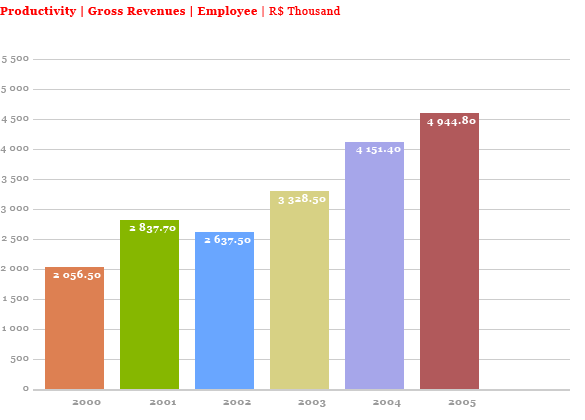 |
 |
In 2004, a strategic plan was implemented
to normalize and consolidate standards and
procedures throughout
the Company’s power plants and, in 2005, AES
Tietê created
new professional and personal growth opportunities, such
as: |
 |
Leadership
Development Program for Managers and Coordinators
LDP
Designed to prepare Company leaders in personnel management.
Emerging Leader Program,
Leadership
Development Program and Senior Executive Program
offered by the AES Corp to its executives, these courses are taught
at the Darden Graduate School of
Business Administration, in the
University of Virginia (USA), and are designed to prepare
senior managers for the challenges of AES’ businesses globally. |
 |
 |
 |
| Workforce Profile |
 |
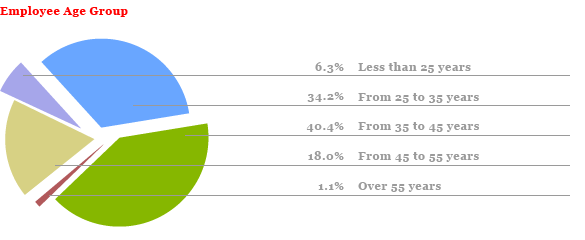 |
 |
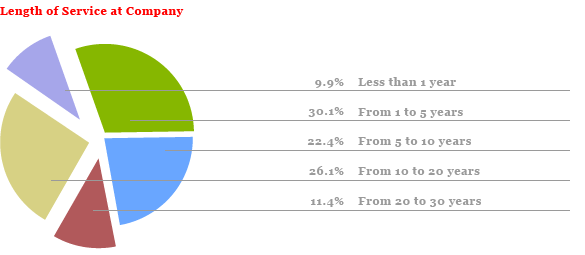 |
 |
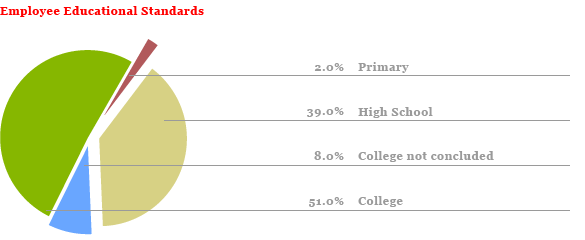 |
 |
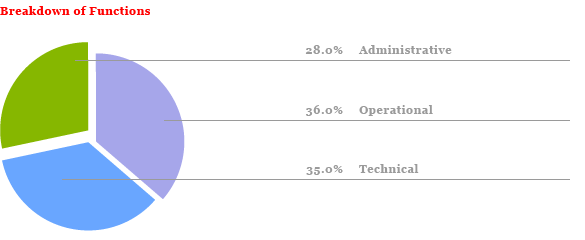 |
 |
| 2 | Health and Safety |
 |
Because of the risks inherent to its activities,
the Company maintains an intensive training program
and strict workplace
safety regulations, as well as providing high quality equipment for
the
good task performance. The investments in safety, which totaled
R$ 1.5 million during the year,
have led to repeated records.
On average, AES Tietê’s power plants have gone seven
years without registering any cases of
lost time injuries. Some units
have surpassed this mark, such as the Ibitinga plant which
has not
had an accident involving lost time for 17 year. This performance
is the result of
an awareness raising effort, of permanent investments
in training and technology and in the
adoption of operating procedures
that are increasingly more efficient. |
 |
| Power Plant |
 |
| Ibitinga |
| Mogi Guaçu |
| Bariri |
| Nova Avanhandava |
| Água Vermelha |
| Limoeiro |
| Barra Bonita |
| Promissão |
| Caconde |
| Euclides da Cunha |
|
 |
| Period Without Accidents*
| Years |
 |
| 17.5 |
| 10.9 |
| 9.5 |
| 8.0 |
| 7.4 |
| 5.3 |
| 5.3 |
| 3.8 |
| 2.7 |
| 2.3 |
|
 |
|
 |
| * Accidents involving employee time-off |
 |
 |
 |
| 3 | Government and Society |
 |
In the condition of an electricity sector
concessionaire, and therefore subordinated to specific
regulations,
the Company has frequent dialogue with federal, state and municipal
authorities,
always respecting the various parties and maintaining
transparency in its actions.
All of AES Tietê’s initiatives
linked to governmental agencies or civil and community organizations
are in line with its Code of Ethics, which foresees strict compliance
with existing legislation and
encourages cordial relationships and
mutual collaboration.
Because of the very nature of its activity, the Company has close
contact with communities,
always seeking solutions that make it possible
to carry out its functions in a fair and
coherent manner, associated
with the collective interest. |
 |
| 4 | Suppliers |
 |
AES Tietê reorganized its logistics
and supplies area, centralizing the acquisition of products and
services.
This change standardized requirements and criteria adopted for hiring
suppliers,
which has facilitated negotiations.
The Company maintains strict standards of quality for deciding upon
partners and, among other
actions, requires that companies adopt
security measures and equipment similar to the models
that its own
employees use. |
 |
 |
 |
| 5 | Cultural Policy |
 |
In 2005, AES Tietê, together with the
other AES Group companies in Brazil, formally instituted its
cultural
policy. The objective was to establish coherent, clear and transparent
rules for the
process of selecting projects in this field. The cultural
policy’s function is to enhance the institutional
image of
the Company and the AES Group with the various target audiences and
communities in
which it is inserted. The actions must not only lead
to cultural, artistic and educational activities
but also be in step
with the corporate strategy.
According to the new policy, the initiatives in this area must also
be synchronized with the
social responsibility program and the principles
of the health, safety and environment policy.
A cultural policy committee
was created to present suggestions, evaluate and decide upon the
projects that will be implemented. Representatives of AES Tietê,
AES Uruguaiana and
AES Eletropaulo sit on the committee, which is
coordinated by the Communication and
Social Responsibility department. |
 |
 |
 |
| 6 | Communities |
 |
To be socially responsible, to interact and
to participate in the sustainable growth of the
communities is one
of the missions of AES Tietê. With initiatives focused on transparency
and in
line with its strategic planning, the Company consolidated
projects that were initiated in 2004 and
adopted new initiatives
for getting closer to the communities in the cities where it has
power plants.
In order to reinforce its image, a change was made to the Company’s
brand logo and, in 2006,
the new visual identity will be well on
its way to being fully implemented. Among the actions in
this process
were a series of communications campaigns about safety, such as warnings
regarding
flooding caused by summer rains and information about the
maintenance of the lock system.
Of the social-cultural actions taken during the year, the following
were particularly noteworthy: |
 |
Citizenship Generation
The Citizenship Generation project is an innovative program to which
the Company is
planning tomake investments of about R$ 1 million
every year, through Rouanet Law incentives,
focusing in cultural,
educational and social projects in cities in the São Paulo
countryside.
The first edition was concluded during 2005: seven
projects out of 25 presented were selected and
will receive support
from the Company. The selected projects will be implemented in
the cities of
Mogi-Guaçu, Mococa, São José do
Rio Pardo, Buritama and Ibitinga.
Besides supporting the development of the activities, AES Tietê ran
a course on Sustainability
Training aimed at the individual responsible
for managing the projects in the municipalities.
The course was taught
by the Third Sector Center and Studies unit of the
Fundação
Getúlio Vargas (FGV).
Kids Project
Organized by the government of the state of São Paulo, this
project is supported by AES Tietê.
The goal is to encourage
musical education of low income children and teenagers in
municipality
of Caconde (SP).
Wake up to the Environment
Each year AES Tietê sponsors the project named Acorde
para o Meio Ambiente (Wake up to the
Environment), created by Pró-Cultura
Marketing Cultural, designed to attract large crowds to
quality musical
events. The 23rd edition of the project was held at the Botanical
Gardens in
São Paulo and presented the spectacle Bibi
Ferreira Canta Edith Piaf, together with the
Orquestra Phylarmonik directed
by João Nelson Merlin. Held on December 18, 2005,
more than
6,000 people were in attendance. Over the course of the year, the
project was
put on the in the cities of Bauru, Ouroeste, Promissão,
Boracéia and Mococa.
Engineer: Energy Profession
The “Engineer: Energy Profession – A Photographic Trip
through Engineering Works” presented an
historic overview of
the profession and its strategic role in the growth and development
of the
city of São Paulo. AES Tietê is the only sponsor
of this exhibit, which was promoted by the São Paulo
State
Syndicate of Engineers (SEESP), with the support of the Historic
Energy Heritage Foundation.
After a run in São Paulo, the
exhibition traveled to some cities in the countryside such as Itu,
Jundiaí, São José do Rio Preto and Caconde.
The exhibit is part of a wider project sponsored by AES Tietê,
which also included the book
“Engineering in the State of São
Paulo and its Contribution to the Country”,
launched in 2004
in São Paulo by SEESP.
Ecological Tour – The Mogi-Guaçu
River
The Company sponsored the 1st Ecological Tour of the Mogi-Guaçu
River organized by the
Rotary Club. One hundred participants in 17
boats were involved in the trip along the river,
and they picked
up approximately 500 kg of garbage on the river bottom and also
planted
native tree seedlings in the riparian vegetation. |
 |
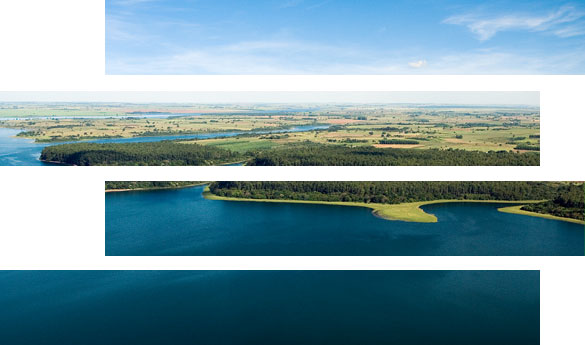 |
|



